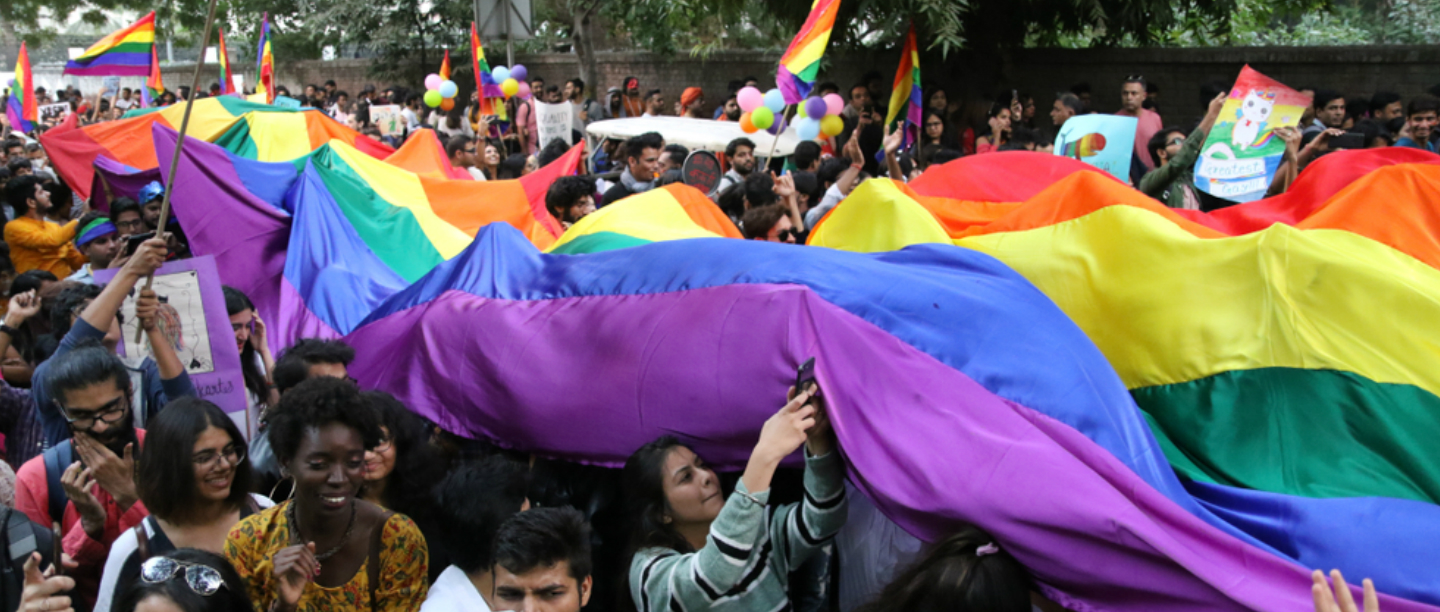
In the year 1999 on a balmy July day, the city of Kolkata hosted India’s first-ever Pride Parade, called the Kolkata Rainbow Pride Walk. Cut to 2020, pride marches now take place annually across various cities in India. It’s one day when the LGBTQAI+ community takes to the streets, proudly wave the rainbow flag, and celebrate their queer identity out in the public. The biggest celebration came in 2018, when the Supreme Court of India struck down section 377, a law that criminalised homosexual sex in India.
However, the pride parade isn’t just a happy march with rainbow flags. It is a platform for dissent, and participants are often known to use it to vocalise important issues. In 2017, pride parades all over India collectively condemned the proposed Transgender Persons Bill 2016–which the community termed ‘regressive’. The same year, the march in Guwahati condemned severely the AFSPA and demanded its repeal.
After the centre passed the controversial Citizenship Amendment Act earlier this month, protests have broken out all over India. Fearing that the pride parade might turn into another anti-CAA protest, the Mumbai Police on Wednesday denied permission to the Humsafar Trust, organisers of the march. The annual march was to start from the historic August Kranti Maidan and conclude at the same place after passing through Nana Chowk, Kennedy Bridge, Opera House and Maharshi Karve Marg. Around 15,000 members of the Lesbian, Gay, Bisexual and Transgender (LGBT) community were expected to participate in the march.
Also Read: #PrideParade: Delhi Paints Itself In All Shades Of Rainbow & Opposes Transgender Bill 2019
Shutterstock
A police official told a leading daily, “Officers of the Agripada police station denied permission to the march on the ground that slogans against the Union government, CAA and the National Register of Citizens (NRC) might be raised during the event.”
The police also issued a notice to the organisers under section 149 of the Code of Criminal Procedure, informing that they would be held responsible for law and order issues if the event is organised at the same spot.
Also Read: Did A Queer Friend Just Come Out To You? Here’s How You Can Support Them!
After Humsafar Trust received the notice, they held a meeting with the police and decided to shift the venue to Mumbai’s Azad Maidan instead. This venue is also a popular site for anti-CAA protests, and in fact, some are slated to take place there on the same day.
Unsurprisingly, members of the queer community were not happy with the venue change. They have expressed their displeasure over the police curbing their freedom and made it clear that while they will march tomorrow, it will NOT be a celebration. Here’s what they are saying:
If you happen to be in Mumbai, we urge you to join the paraders in their march against the police’s attempt to throttle to voices of an already marginalised community.
Featured Image: Shutterstock